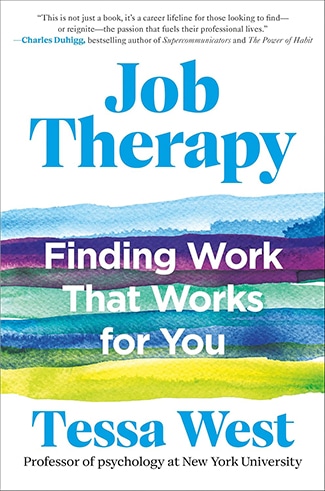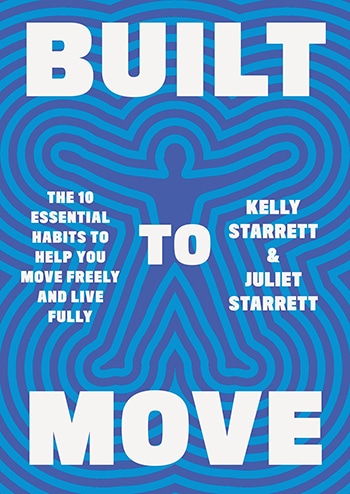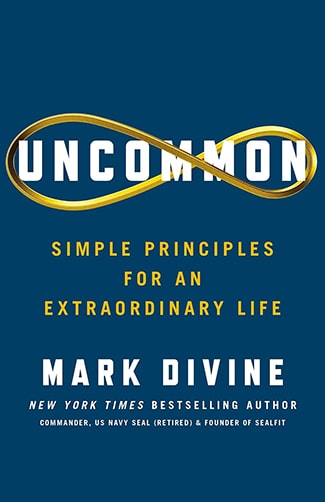Podcast Summary
Evolving Goals and Overcoming Setbacks in Your Fitness Journey: As you progress in your fitness journey, embrace change and setbacks as natural parts of the process. Find new goals, enjoy the training process, stay consistent, and adapt to challenges for long-term strength and fitness.
As you progress in your fitness journey, your focus and goals will change. Starting out, you may strive for big milestones and personal records, but as time goes on, you may face setbacks such as injuries, lack of time, and shifts in motivation. It's important to recognize that this is a natural part of the process for many lifters and athletes. To continue making progress and rediscover your motivation, focus on finding new personal records to chase and learn to enjoy the process of training rather than solely focusing on the outcome. Additionally, as life gets busier and you age, it's crucial to find ways to stay consistent with your workouts and effectively deal with injuries both physically and mentally. Remember, the journey towards strength and fitness is a lifelong commitment that requires adaptation and perseverance.
The Benefits of Strength Training for Beginners: Strength training is a foundational physical ability that improves cardiovascular endurance, mobility, agility, power, and speed. It provides rapid overall improvement and enhances both strength and mobility.
Strength training has numerous benefits for individuals of all levels, especially beginners. While strength training is not the only physical ability to focus on, it serves as the foundation for improving other aspects such as cardiovascular endurance, mobility, agility, power, and speed. Strength training, particularly with heavy compound lifts, provides the best results in terms of overall improvement in the shortest amount of time. It enhances not only strength but also mobility. On the other hand, other activities like yoga may improve mobility but do not contribute to increasing strength. Utilizing the rapid improvement experienced by beginners, it is vital to invest time and effort in a high ROI activity like strength training to maximize the benefits and enhance one's quality of life.
Consistency and technique are key for beginner lifters.: Building strength requires consistent training and mastering proper technique, with the guidance of a good coach, rather than solely focusing on programming.
For beginner lifters, the most crucial factors are consistency and technique. Building a foundation of strength requires a paradigm shift and a lifestyle change, making consistency a significant challenge. Additionally, beginner lifters often struggle with technique, and this is where having a good coach is essential. A coach provides guidance, accountability, and a keen eye for technique refinement. In contrast, programming is relatively less important for beginners compared to consistency and technique. While many discussions revolve around programming in the fitness world, it is the daily commitment to training and mastering proper technique that truly lays the groundwork for progress.
Progressing from beginner to advanced lifting: Technique, consistency, and programming: As you progress as a lifter, shifting focus from technique to programming becomes crucial for intermediate lifters, while continuous improvement and adapting programming are key aspects for advanced lifters.
As you progress from a beginner to an intermediate lifter, the focus shifts from technique and consistency to programming and accountability. While technique and consistency are crucial for beginners, intermediate lifters need to pay more attention to their programming to continue making progress. The concept of minimum effective dose programming becomes important, which involves making small changes to achieve the greatest return on investment in the long term. Additionally, accountability becomes a vital factor for intermediate lifters as it helps in maintaining consistency and ensuring adherence to the workout regimen. As for advanced lifters, being considered advanced is not solely based on strength, but also on the duration between personal records. Continuous improvement and adapting programming become key aspects for advanced lifters.
The Importance of Patience and Commitment in Strength Training: Achieving personal records in strength training takes time and commitment as your body needs to go through the stress recovery adaptation cycle. Prioritizing intense stress is essential for progress.
As you progress in strength training and aim for personal records (PRs), it takes longer and longer to achieve them. This is because your body needs time to go through the stress recovery adaptation (SRA) cycle. As a beginner, any new exercise or activity will bring about adaptation quickly, but as you become more advanced, the stress needed to stimulate further adaptation increases significantly. In the case of the interviewee, reaching a 620-pound deadlift from a previous PR of 605 pounds took more than a year. The pursuit of strength becomes more challenging as it requires a tremendous amount of stress, recovery, and adaptation. Therefore, it is important to prioritize and be willing to commit to the intense stress required to achieve new PRs.
The importance of a mindset shift for consistent progress in any area of life.: Consistent progress requires effort and a broader perspective, aiming for small improvements over time rather than pursuing extreme levels of success or transformation.
Consistent progress in any area of life requires a shift in mindset as we advance. Just like in weightlifting, where advanced lifters aim for PRs once or twice a year, other pursuits such as running, business, and even weight loss follow a similar pattern. When we start out, progress comes easily and big wins are achievable. However, as we reach proficiency, making even a 1% improvement requires a massive amount of effort. It's important to pull back and take a broader perspective, looking at progress over months, quarters, or even years. Most importantly, the ultimate goal for the majority of people is to improve their quality of life and maintain a healthy balance, rather than pursuing extreme levels of success or physical transformation.
Programming for Advanced Lifters: A Systematic Approach to Progression: By gradually increasing weight, volume, frequency, and intensity while minimizing deload periods, advanced lifters can consistently progress and improve their performance.
Programming for advanced lifters requires a systematic approach of making minimum, effective, dose changes. In the beginning, adding a little more weight to the bar consistently is sufficient. However, as progress stalls, other variables need to be manipulated. This includes increasing volume by adding more sets or reps, increasing frequency of training, and manipulating sets and reps. One can also manipulate intensity by adjusting the weight and tonnage lifted. The concept of deloading, which is taking a break to recover from accumulated stress, can be minimized by properly programming and continuously adding small increments of stress. By following these principles, advanced lifters can continue to progress and improve without needing frequent deload periods.
Redefining Personal Records and Staying Motivated in Fitness Journey.: As we age, it is important to shift our focus from chasing specific personal records to prioritizing health, consistency, and overall well-being in our fitness journey. Discipline and gamifying daily activities can help maintain motivation and progress.
As our fitness goals change and we age, we need to redefine what constitutes a personal record (PR) and find new ways to stay motivated. PRs are not limited to one-rep maxes; they can be achieved in different rep ranges or by hitting specific weight goals. However, as we get older, it becomes unrealistic to chase certain PRs. Instead, we can shift our focus to other metrics like health, consistency, body weight, heart rate, sleep, and overall well-being. By gamifying these aspects and finding joy in daily activities, we can maintain motivation and continue making progress. Discipline becomes more important than relying solely on motivation, as it ensures we stay committed to our fitness journey even when PRs become harder to achieve.
Balancing discipline and motivation for sustainable change.: Prioritize personal growth and enjoyment in the journey of change instead of fixating solely on outcomes.
Sustainable change requires a balance between discipline and motivation. While discipline is important for initiating change, it is not enough to maintain it in the long term. Matt Reynolds emphasizes the importance of pursuing personal records (PRs) and strength training to experience the refining power of voluntary hardship. However, he also acknowledges the need for a paradigm shift and reevaluating priorities as we mature and take on additional responsibilities in life. Brett McKay shares his own journey, realizing that chasing after heavier lifts no longer brings him fulfillment or improves his quality of life. Instead, he finds joy in the process of training itself, emphasizing the value of enjoying the journey rather than fixating solely on outcomes.
Balancing Fitness Goals with Other Responsibilities: As you advance in your fitness journey, it is important to prioritize and balance other areas of your life while finding enjoyment and motivation in the process. Incorporating variation in exercises can also make workouts more enjoyable.
As you progress in your fitness journey, your goals and priorities may need to shift. For beginners and intermediates, hitting personal records (PRs) can truly change their lives and introduce training into their daily routines. However, as you advance to lifting heavier weights or achieving more challenging goals, it becomes necessary to make adjustments in other areas of your life. It's like managing a budget of stress – you only have so much to spare. This is especially important for individuals in their 40s who have other responsibilities as businessmen, husbands, and fathers. While some people may view training as a burden, it's crucial to find enjoyment and motivation in the process itself, not just the end result. Additionally, incorporating different exercises and variations can help keep your workouts fresh and enjoyable.
Adapting Training Routines for Older Lifters: Prioritize building strength with the barbell first, focus on volume and tonnage on accessory movements, adjust goals and embrace the process as age and responsibilities change.
As lifters get older, it becomes important to shift their focus and adapt their training routines. While isolation movements and hypertrophy-specific exercises can be enjoyable and beneficial, beginners should prioritize building strength with the barbell first. Older lifters, in particular, tend to be intensity-dependent and volume sensitive. Accumulating volume and tonnage on accessory movements, such as leg extensions or glute ham raises, can be easier on the joints and still provide the desired stimulus. It is crucial to adjust goals and embrace the process rather than chasing personal records as age and responsibilities change. As time becomes more limited due to family commitments or other activities, finding efficient ways to fit workouts into the schedule becomes essential.
Maximizing Workouts in Limited Time: Focus on density of training and utilize circuit training to make the most out of limited workout time, allowing busy individuals to maintain their fitness habits.
Even with a busy schedule, it's important to make time for workouts. Instead of skipping exercise altogether, focus on the density of training - how much work can be done in a limited amount of time. For example, if you only have time for one set of a particular exercise, push yourself to do as many reps as possible. Additionally, circuit training can be a time-saving technique, where you alternate between different exercises with short rest periods. By tracking the time of your workouts and optimizing your training routine, you can achieve great results in a shorter period. This approach is especially beneficial for individuals with busy lives, such as CEOs, parents, and those on vacation, as it allows them to maintain their fitness habits without sacrificing other important commitments.
Consistency and Habits in Training for Long-Term Progress: Maintain consistency in training, even in busy times, to prevent regression. Listen to your body to avoid injuries and focus on the bigger picture of long-term progress.
Maintaining consistency and habit in training is crucial for avoiding de-training and going backwards in progress. While it may be tempting to skip workouts or make excuses when life gets busy, it's important to find ways to keep training, even if it's for shorter durations or in different settings like hotel gyms. The focus should be on maintaining the habit and keeping the stress accumulated in the muscles, rather than achieving immediate results. Injuries, especially tendon injuries, are common in training due to overuse, so it's important to listen to the body and not push too hard. Ultimately, it's about the long-term process and seeing the bigger picture rather than getting caught up in individual workouts or setbacks.
Understanding Tendon Injuries and Rehabilitation: Tendon injuries, like tendinosis and tendonitis, are common overuse injuries that occur when tendons lack proper blood flow. Rehabilitating these injuries requires a three-part system with isometric holds.
Injuries can happen to anyone, not just weightlifters. While catastrophic injuries are rare in the weight room, overuse injuries such as tendinosis or tendonitis are more common. These injuries occur when tendons are overused and lack proper blood flow and nutrients. The white color of tendons indicates the low blood flow compared to the red muscles. It is challenging to rehab these injuries because of the limited blood flow to the tendons. Various types of tendonitis can occur in different areas of the body, such as the elbow, shoulder, groin, and knee. To effectively rehab tendinosis or tendonitis, a three-part system involving isometric holds is recommended.
Rehabilitation for Tendon Injuries: A Patient and Gradual Approach: Gradual strengthening exercises, limited range of motion, and personalized adjustments are essential for rehabilitating tendon injuries and promoting long-term recovery.
Tendon injuries, specifically tendinosis, require a patient and gradual approach to rehabilitation. Instead of stretching the tendon, it is necessary to focus on isometric holds to strengthen the tendon without causing further aggravation. Starting with a limited range of motion and gradually increasing it, along with a progressive increase in weight, helps in rebuilding tendon strength over time. Recovery from tendinosis takes longer due to the limited blood flow to tendons, making it crucial to be patient and avoid rushing the process. Different types of injuries, such as torn muscles or joint issues, require different rehabilitation methods. Personalized adjustments, like changing the grip during bench presses, can also aid in recovery.
Balancing Exercise and Rehabilitation for Injury Recovery: Continuing to exercise and adjust movements while rehabilitating an injury helps to build strength and resilience, while sitting idle makes us weaker and more prone to further injuries.
When dealing with injuries, it's important to stop aggravating the affected area but not completely stop exercising. By making adjustments to movements and range of motion, we can continue to build strength and resilience in our bodies. Sitting around and doing nothing actually makes us weaker and more susceptible to future injuries. Motion is lotion, but we must approach it intelligently. Additionally, managing the mental game of injuries can be challenging, but doing nothing for extended periods of time doesn't make the injury go away. Trying different methods and giving them enough time to work is crucial. We can still train and pursue personal records in areas that aren't injured while rehabbing the affected area. Ultimately, we need to find a balance between rehabbing and exercising what we can to maintain overall health and strength.
The Value of Persistence and Achievable Goals in Strength Training: Overcoming mental challenges in strength training requires perseverance and focusing on personal records (PRs). Consistent training, rehabbing injuries, and setting achievable goals are essential for long-term health and continuous improvement.
The key to overcoming mental challenges in strength training is perseverance and focusing on personal records (PRs). Matt Reynolds emphasizes the importance of rehabbing specific injuries and pushing through them to achieve PRs in other areas. He suggests that training consistently and pursuing attainable goals can help combat the mental game. Additionally, Reynolds mentions that strength training should be viewed as a foundation for long-term health and recommends consuming content before investing in training programs. He also highlights the significance of setting new PRs after turning 40, reinforcing the mindset of continuous improvement. Ultimately, this conversation emphasizes the value of persistence and setting achievable goals in strength training.












